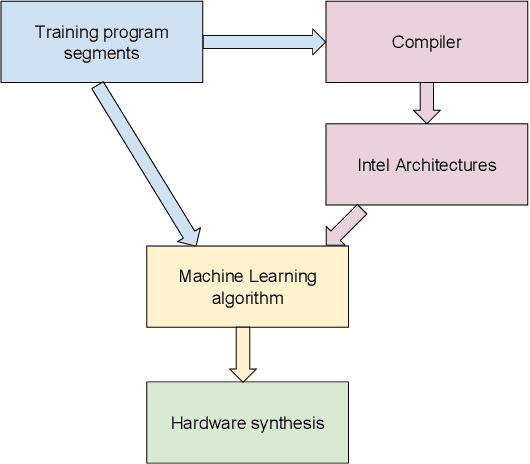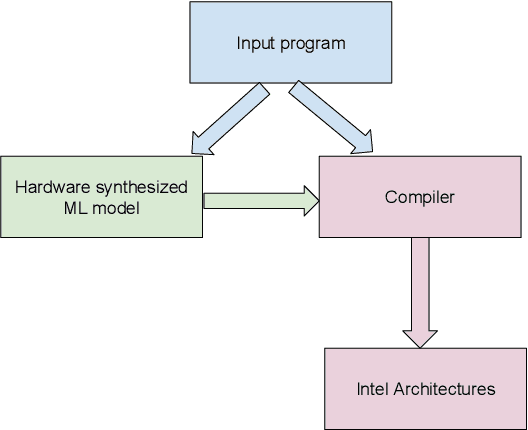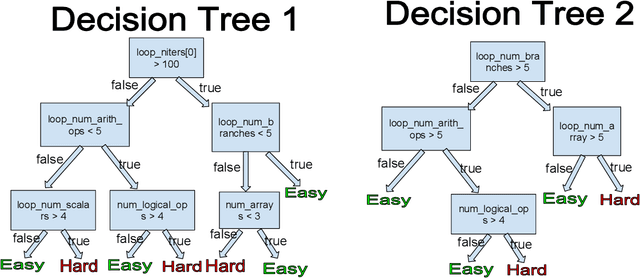Categorization of Program Regions for Agile Compilation using Machine Learning and Hardware Support
Paper and Code
May 29, 2019


A compiler processes the code written in a high level language and produces machine executable code. The compiler writers often face the challenge of keeping the compilation times reasonable. That is because aggressive optimization passes which potentially will give rise to high performance are often expensive in terms of running time and memory footprint. Consequently the compiler designers arrive at a compromise where they either simplify the optimization algorithm which may decrease the performance of the produced code, or they will restrict the optimization to the subset of the overall input program in which case large parts of the input application will go un-optimized. The problem we address in this paper is that of keeping the compilation times reasonable, and at the same time optimizing the input program to the fullest extent possible. Consequently, the performance of the produced code will match the performance when all the aggressive optimization passes are applied over the entire input program.
 Add to Chrome
Add to Chrome Add to Firefox
Add to Firefox Add to Edge
Add to Edge